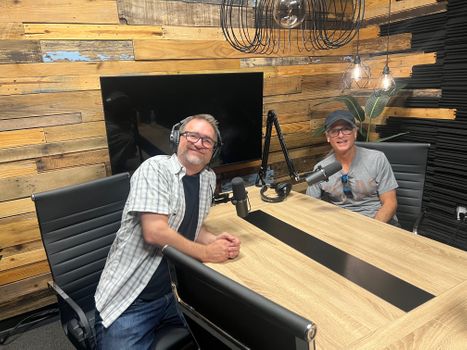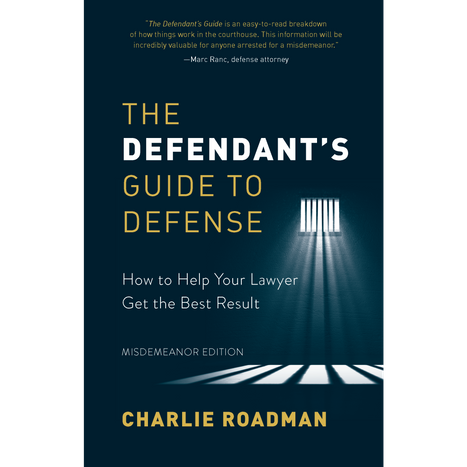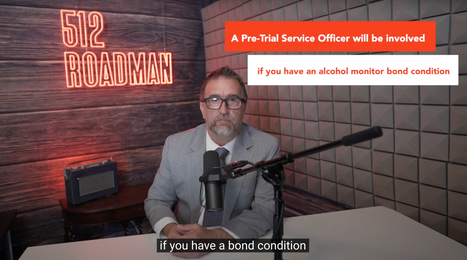Austin DWI Guide
Here's our advice for getting through this.
#1 Follow your bond conditions
What is a bond?
The bond is the paperwork that allows the sheriff to release you from jail. It may be a “personal bond” or a “surety bond” (used by bail bondsmen). Either one can have bond conditions.
What bond conditions are you talking about?
In addition to going to court when required, judges occasionally add conditions to the bond – such as the installation of an ignition interlock device (IID) or getting an alcohol and drug evaluation (CES). Make sure that you have read and understand all the paperwork you were given when you were released from jail. If you have a question about something, call us at 512-472-1113.
How do the judges decide whether to add conditions?
Judges usually add conditions to a bond if you have been arrested before or if the allegations surrounding the arrest (which they can see from the probable cause affidavit) are unusually dangerous. A high blood alcohol content, collision, or exceptionally bad driving will usually cause the judge to include conditions.

There is a “see attached conditions order form” checkbox on the personal bond. If it is checked, there will be additional things you need to do. In this example, it is checked.

If the “bond conditions” box is checked on the personal bond, you will need to do whatever is checked on this page. On this sample bond, Mr. Richard’s bond conditions include random UAs, a curfew, and an alcohol evaluation.
What happens if I don’t follow my bond conditions?
Pretrial Services will notify the judge of your non-compliance. The judge can raise/revoke your bond and issue a warrant for your arrest.
Can an attorney get the judge to change my bond conditions?
Sometimes. However, the judge is unlikely to remove any alcohol monitoring requirements without a good reason.
I was ordered to get an IID. What if I don’t have a car?
The judge will likely require you to get a portable alcohol monitor (which must be blown into 4 times a day – and is therefore harder to use than the IID). There are situations where the judge may remove an alcohol monitoring requirement after 3-6 months (if there have been no violations). Your attorney will have to ask the judge to agree to the removal before you can stop using the device.
Do I have to pay a small fee for the personal bond I received?
Yes. The amount will be written on the little yellow “coupon” that is attached to the bond paperwork.

There is a $20-$40 fee for a personal bond (depending on the amount of the bond) or 3% of the bond amount if there is an ignition interlock device requirement. This fee can be paid online. The court wants you to pay it within 7 days of release.

The court date is written in the middle of the bond (23rd of December 2020 at 9 AM). The first court date is almost always reset by the court without you having to go. You will likely receive a text message from the court with the new date.
Will I have to go to court on the date listed on the bond?
Unlikely. Most first court dates are reset by the court. If you have an attorney it can be 6-8 months before you have to go to court.
But I want to show the judge that I am taking the case seriously.
Going to court when it is not necessary will not impress the judge. The judge won’t even be aware that you went. Any good attorney will let you know when going to court is required or benefits you.
#2 Don’t get arrested again while this case is pending
That’s ridiculous. Why would you even say that to me?
Unfortunately, I’ve had many clients get re-arrested while their first case is pending. I think the stress of getting arrested causes some people to seek relief in alcohol. All I am saying is that you probably didn’t expect to get arrested the first time either, right? Be super careful while this case is pending.
Why? What happens if I get arrested again?
If you are arrested again while your case is pending, the judge and prosecutor will think that you are a safety risk to the people of Austin. The judge will add every condition to your bond that they can think of – including an alcohol-detecting ankle monitor and an IID. Yes, both of them! You may even have to spend 3-7 days in jail before the judge will release you. Any probation that you ultimately receive would be severe, expensive, and include long-term counseling and continued alcohol monitoring.
I won’t get arrested again, I promise.
Great.

If you get arrested again while you are out on this personal bond, the court will likely revoke your bond and not give you another one for the new charge.
#3 Don’t miss the 15 day window to request an ALR hearing
What is the ALR hearing?
It is the Administrative License Revocation hearing – which is a type of court date for your Texas driver’s license. The ALR hearing only happens if you request it within 15 days of your arrest.
What happens if I don’t request the ALR hearing?
Your license will be suspended automatically 40 days after your arrest (if you blew .08 or over on the breathalyzer at the police station or you refused to blow and/or give blood).
Can I request the ALR hearing myself?
Yes, but it is safer to have an attorney do it for you. If you decide to do it yourself, the instructions are on the Temporary Driving Permit that you likely received when you were released from jail. There is more you need to do after you request the hearing (which is why using an attorney is recommended).
#4 Review your PC affidavit with an attorney
Where can I get the PC affidavit
An attorney can get it from the online Odyssey system. We are happy to get your PC for you. Call (512-472-1113) or email us: charlie@roadmanlaw.com - Include your full legal name and DOB with subject line "PC Request"
What is on the PC affidavit?
The PC will say why the officer suspected you of being intoxicated, the reason they pulled you over (or how you got their attention) and the blood alcohol content (BAC) if you blew in the breathalyzer.
Will it show the BAC if they took blood?
No. It takes 2-5 months for the blood results to come back. Your attorney will tell you when it is available.
#5 Take the Required Counseling Classes
But I was only arrested – I haven’t been convicted yet.
The prosecutors usually give you credit for taking the classes in advance. It shows that you are taking the case seriously. Almost every possible good outcome requires that you take these classes, so you might as well get some credit for taking them quickly, right?
What is the D.W.I.E. class?
The 12-hour D.W.I.E. class is required for nearly every first time DWI arrest. The class is taught over three days for four hours a day, but each class provider has a different schedule of when the class is offered. The class is not allowed to be taught in a single day – three days is the minimum required by the State.
What is the D.W.I.E. class like?
The D.W.I.E. class curriculum was designed by the State of Texas. The class is like a group counseling session combined with 8th-grade health class. Nobody wants to take the class, but the majority of my clients end up saying that it wasn’t that bad and that they actually learned something. While the curriculum could be improved (the videos and PowerPoint presentation are outdated), I think the class is very effective in creating an environment where people can self-reflect on their relationship with alcohol.
#6 Consider private counseling
Do I really need to do this?
You don’t have to, but this is the perfect opportunity to explore the possibility that you could benefit from talking to a professional counselor. Personally, I am a huge fan of counseling – which is primarily just talking about your life to a neutral party. I have had many clients see a therapist for the first time after their arrest and are very happy that they did. The prosecutors will usually give some type of credit/benefit if we should them documented proof that you've attending private counseling.
How do I find a good therapist?
Get online. Read reviews. Go meet a few and see if you like them. If you are having trouble finding someone, call us.
Other than this lousy legal situation I’m in, I’m a pretty stable and grounded person. I don’t think I need to see a counselor.
That’s fine. I’m just saying that talking to a counselor is like getting a massage. Is there ever a time where a massage wouldn’t be nice? One of life’s great pleasures is talking about yourself to another person.
#7 Be Patient
How long will this take?
Most DWI cases are resolved in 8-10 months. But sometimes it can take 18+ months.
Why does it take so long?
There are a bunch of reasons that the Travis County Courthouse moves slowly. First, it takes the County Attorney (prosecutor) a few months to draft the proper legal documents to charge you. Second, it takes the police time to share the evidence. Third, it takes defense attorneys time to review the evidence and negotiate with the prosecutors. And finally, there may be things that have to be done before the case can be resolved (i.e. counseling, alcohol monitoring, etc.)
Can I make the case go quickly?
Only if you want a bad result (conviction). That can be done in 2-3 months. The best result, like a dismissal, takes time.
#8 Review Our Other Resources
Podcasts
Listen to "Austin DWI Charges" by Charlie Roadman
Defendants Guide to Defense
Charlie's book is available on Amazon.
Watch our Videos
We've made 100+ videos about the Travis County courthouse.



